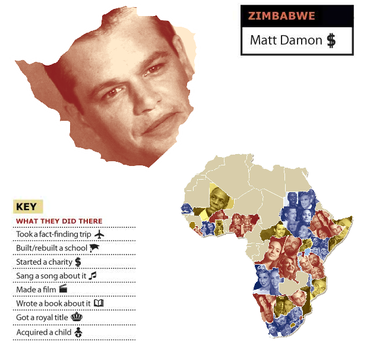
Mother Jones has created an interactive map of Africa that reflects each country's celebrity sponsors. On the left, you can see a screenshot of Zimbawe, where Matt Damon has started a charity.
In her article "The Smiling Faces of Young Africans" scholar Kathryn Mathers looks at the recent trip of baseball player Clayton Kershaw to Zambia. She analyzes an article written on the subject, calling out its lack of specificity of the actual work Kershaw was doing and portrayal of Zambia as a country with only (joyful) children. Mathers comments: "The ‘discovery’ that many travelers make – that people living in poverty in Africa are not hopeless, discontented or nasty – makes it very easy to help them." Mathers argument echoes a quote by Slavoj Zizek, political philosopher: "It is easier to have sympathy with suffering than sympathy with thought." As long as Americans see Africa as a place where they can exercise their privilege, it will act mainly as a venue for their own emotional gratification.
In her article "The Smiling Faces of Young Africans" scholar Kathryn Mathers looks at the recent trip of baseball player Clayton Kershaw to Zambia. She analyzes an article written on the subject, calling out its lack of specificity of the actual work Kershaw was doing and portrayal of Zambia as a country with only (joyful) children. Mathers comments: "The ‘discovery’ that many travelers make – that people living in poverty in Africa are not hopeless, discontented or nasty – makes it very easy to help them." Mathers argument echoes a quote by Slavoj Zizek, political philosopher: "It is easier to have sympathy with suffering than sympathy with thought." As long as Americans see Africa as a place where they can exercise their privilege, it will act mainly as a venue for their own emotional gratification.
When celebrities get involved in humanitarian efforts, questions of global engagement are augmented by the presence of immense wealth and fame, in addition to being plastered across the global news and entertainment media. Though celebrities may make personal discoveries while abroad, just as study-abroad students do, many times the discoveries they make about the world allow them to stay within their comfort zone, rather than challenge and dismantle it. Mathers says, in her article, "It is a cliché that travel is about finding yourself and not really learning about the places through which you travel. But Kershaw doesn’t even really find himself in Zambia. He finds a comfortable space in which to inhabit his American privilege without having to question it. "
On this website, an explanation of study abroad privilege and privilege in general can be found here. More articles like Mathers' quoted piece, as well as more of her work, can be found in the further reading page.
On this website, an explanation of study abroad privilege and privilege in general can be found here. More articles like Mathers' quoted piece, as well as more of her work, can be found in the further reading page.
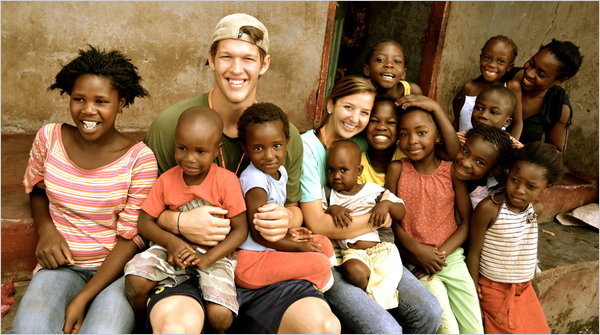
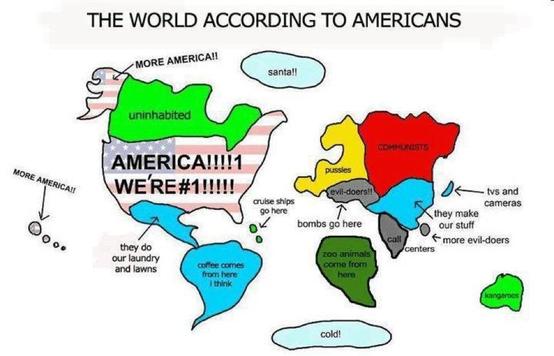



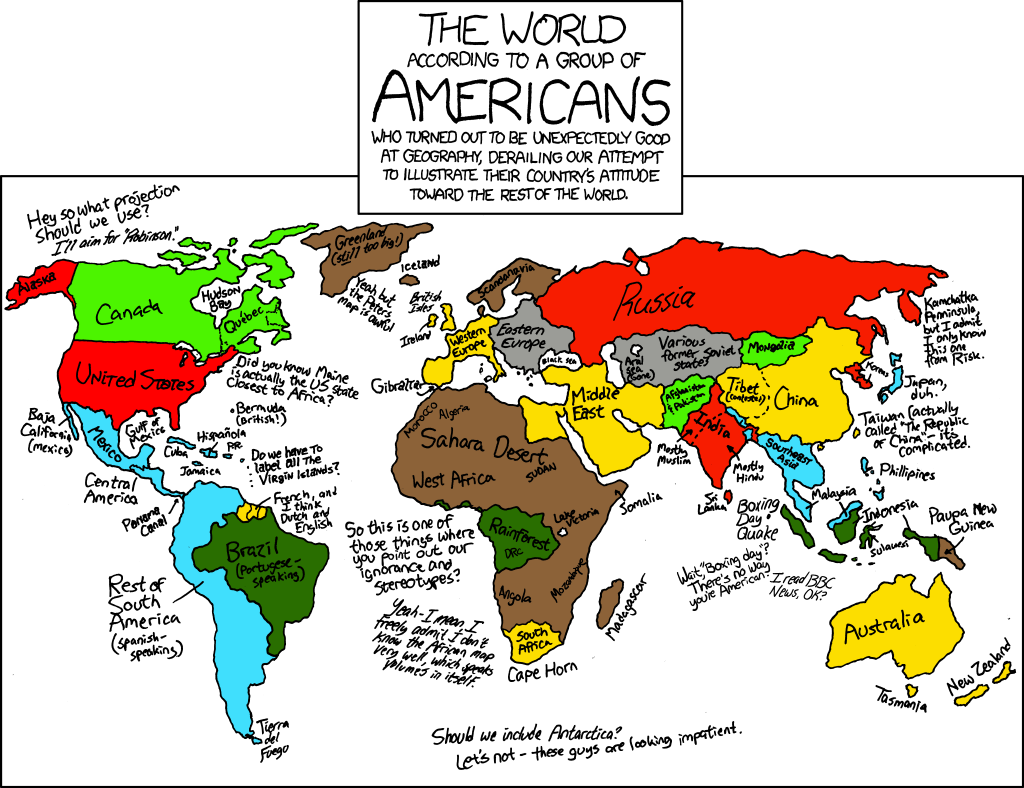
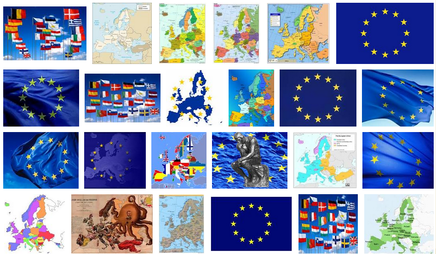
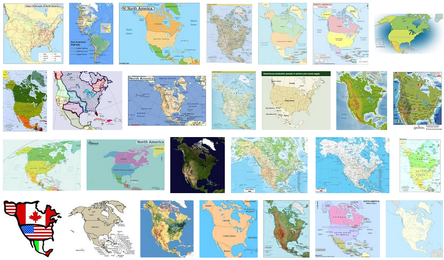
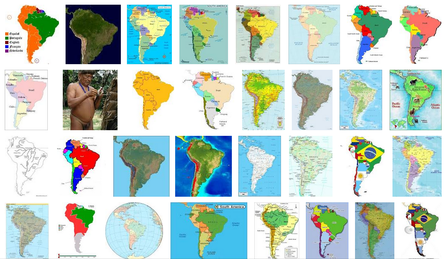
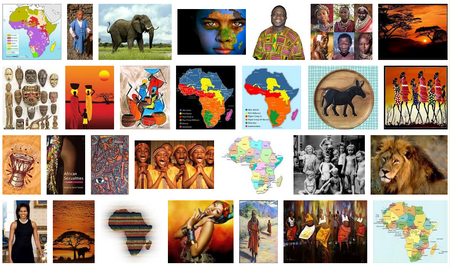

 RSS Feed
RSS Feed